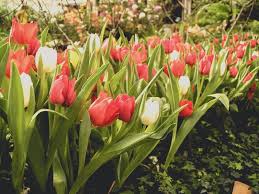
Throughout history, religious rituals have played a fundamental role in shaping the political, cultural, and social landscapes of many civilizations. In Imperial China, religious ceremonies were not only spiritual practices but also significant tools in affirming the authority of the emperor and consolidating the empire’s power. These rituals were deeply embedded in the daily life of the imperial palace and were often performed to maintain harmony between the heavens, the emperor, and the people. This article delves into the importance of religious rituals within the imperial palace, focusing on their multifaceted role in governance, diplomacy, and culture.
1. Religious Rituals as a Symbol of Imperial Authority
In Imperial China, the emperor was regarded as the “Son of Heaven,” a divine figure with the responsibility to rule in harmony with the natural order and maintain the Mandate of Heaven. The emperor’s authority was not only secular but also deeply spiritual, as it was believed that his rule had a cosmic dimension that could influence the fortunes of the entire nation. This profound connection between the emperor and the divine was reinforced through religious rituals held within the palace.
One of the most important religious rituals was the sacrificial ceremony to Heaven, which was held at the Altar of Heaven in Beijing. These annual sacrifices were conducted by the emperor to honor the gods and seek divine favor for the empire. The rituals were performed at the imperial palace and emphasized the emperor’s role as the intermediary between the heavens and earth. The emperor, acting as the “Son of Heaven,” would engage in elaborate rituals, offering sacrifices such as animals, grains, and incense, to appease the gods and ensure a good harvest, peace, and prosperity for the empire.
Religious rituals in the palace, including these sacrifices, were a crucial expression of the emperor’s legitimacy. They symbolized his divine right to rule and the belief that his reign was ordained by the heavens. These rituals also reinforced the emperor’s centrality in the political and religious life of the empire, positioning him as the ultimate authority both in governance and spirituality.
2. Confucian Rituals and Their Role in Palace Governance
Confucianism, which became the official ideology of the Chinese imperial system, placed great emphasis on ritual as a means of maintaining order and morality within the state. Confucian rituals were an essential part of the daily life in the imperial palace, and they provided the framework for the emperor’s governance.
The emperor, as the highest Confucian authority, was expected to perform numerous daily rituals, such as bowing to the ancestors and engaging in acts of filial piety. These acts were seen as vital not only to ensuring the well-being of the emperor’s own soul but also to the moral order of the empire. By performing these rituals, the emperor could demonstrate his commitment to the Confucian values of respect for tradition, filial piety, and moral rectitude, all of which were essential to maintaining the stability of the state.
Moreover, the imperial palace was often a site for the examination of Confucian texts, with scholars and advisors gathering in the court to study, discuss, and debate the principles of Confucianism. These intellectual and religious exchanges helped guide the emperor’s decisions and ensured that the state remained aligned with Confucian ideals. Confucianism shaped not only the emperor’s spiritual life but also the way he governed, making religious rituals integral to the operation of the palace and the empire.
3. Daoist and Buddhist Rituals in the Palace
While Confucianism was the dominant philosophical framework of the Chinese imperial system, Daoism and Buddhism also played significant roles in the spiritual life of the emperor and the palace. Both of these religions brought with them distinct rituals and practices that complemented Confucian teachings and provided additional layers of spiritual meaning to the imperial court.
Daoist rituals were often performed to ensure the emperor’s health, longevity, and spiritual well-being. Daoism emphasized the importance of living in harmony with nature and the cosmos, and many of the emperor’s religious practices were designed to achieve this balance. Rituals such as fasting, meditation, and the use of talismans and incense were commonly employed by Daoist priests in the palace. These rituals were believed to protect the emperor from illness, enhance his vitality, and even grant him immortality, which was a common aspiration in Daoist thought.
Buddhism entered China from India, and over time, it became an influential part of Chinese culture and imperial court life. Buddhist rituals, including chanting, prayers, and the offering of incense, were used to bring peace and serenity to the palace. Many emperors sponsored Buddhist temples and monasteries, and some even took part in Buddhist ceremonies to ensure good karma and divine protection for their reign. These rituals helped create an atmosphere of spiritual tranquility within the palace, contributing to the emperor’s sense of divine favor.
The emperor’s engagement with Daoist and Buddhist rituals further reinforced his position as a figure capable of bridging the spiritual and earthly realms. The integration of these religious practices into palace life allowed the emperor to appeal to a broader range of spiritual forces, ensuring that his reign was supported by both moral authority and cosmic harmony.
4. Rituals for the Ancestors: Connecting with the Past
In addition to rituals performed for the heavens and spiritual deities, ancestor worship played a crucial role in the life of the imperial palace. Ancestor worship was central to Chinese culture and Confucianism, and it was considered essential for the prosperity and stability of the state. The emperor’s ancestors, in particular, were venerated through elaborate rituals performed at the ancestral hall within the palace.
The emperor was expected to show deep respect for his ancestors, as it was believed that the strength and legitimacy of his reign depended on his adherence to this ancestral duty. The rituals involved offerings of food, incense, and ceremonial gifts, accompanied by prayers and songs to honor the spirits of the ancestors. These rites were often performed during important festivals, such as the Qingming Festival and the Winter Solstice, which were dedicated to honoring the dead.
Ancestor worship not only connected the emperor with his familial past but also served as a reminder of his responsibilities to the nation. It was a way for the emperor to draw on the wisdom and strength of his forebears to guide his own actions, ensuring that his reign was both morally righteous and politically stable.
5. Religious Rituals as Tools of Political Legitimacy
Religious rituals in the imperial palace were not only expressions of faith but also tools of political legitimacy. The emperor’s ability to perform these rituals successfully was seen as proof of his rightful place on the throne. If the emperor failed to conduct the proper ceremonies or if the rituals were perceived as insincere, it could lead to a loss of support from the people and the court, which could ultimately undermine his reign.
In many ways, these rituals acted as a performance of power, showing the people that the emperor had the necessary divine favor to rule. The larger the scale of the rituals and the more elaborate the ceremonies, the greater the emperor’s prestige. The palace was filled with religious imagery, from sacred objects to altars, all of which were symbols of the emperor’s connection to the divine.
Moreover, these rituals served as a means of unifying the court, the people, and the empire. By performing rituals together, the emperor and his subjects participated in a shared experience that transcended personal interests and reminded everyone of their collective identity. The success or failure of these rituals was often viewed as a reflection of the emperor’s ability to maintain harmony and order throughout the empire.
6. Religious Rituals and Diplomacy
Religious rituals were also an important aspect of China’s diplomatic relations. Foreign emissaries were often invited to the imperial palace to witness these elaborate ceremonies, which showcased China’s cultural and spiritual depth. The grandeur of the rituals and the emperor’s role in them served to reinforce China’s prestige on the international stage.
For example, during the tribute missions, foreign delegations would observe the imperial sacrificial rites, which symbolized the emperor’s divine right to rule. These diplomatic encounters were opportunities to display China’s superior culture and religion, impressing neighboring states and ensuring their submission to the empire’s authority.
In the case of Buddhism, Chinese emperors often sought to use Buddhist teachings and monastic institutions as diplomatic tools to forge closer relationships with neighboring kingdoms, such as Tibet and Central Asian states. By promoting religious unity, the emperor could strengthen ties and ensure that China remained the spiritual and cultural leader of East Asia.
7. Conclusion: The Enduring Legacy of Religious Rituals in the Imperial Palace
Religious rituals within the imperial palace played an indispensable role in shaping the political, cultural, and spiritual life of Imperial China. They reinforced the emperor’s authority, provided a means for maintaining cosmic and moral order, and served as important instruments of diplomacy. Through these ceremonies, the emperor was able to assert his divine legitimacy, connect with his ancestors, and govern with the support of both spiritual and worldly forces.
While the imperial system eventually collapsed, the traditions of religious rituals have continued to influence Chinese culture, especially in terms of reverence for ancestors, respect for authority, and the importance of harmony in governance. Today, the legacy of these rituals lives on in many aspects of Chinese society, continuing to inspire a deep sense of spiritual and cultural identity.









